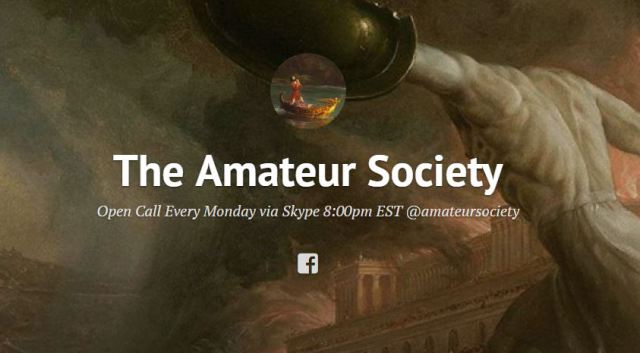“At my inauguration, I swore on the Holy Bible to uphold the Supreme Law of the Land, The United States Constitution.
The 5th and 14th amendments both guarantee that no state shall deprive any innocent person of their life without due process of the law and equal protection on the laws.
As president, I will enforce these vital provisions of the United States Constitution as I am morally and constitutionally required to do.
Today, I am calling on every individual state Governor to enforce the imperative and explicit provisions of the 5th and 14th amendments by closing down all abortion centers and related activities including distribution of chemical abortion pills in their state.
If any individual state governor fails to enforce the God-given right to life for all innocent human persons in his state from conception to natural death, I will direct my attorney general and justice department to utilize any and all federal resources to shut these killing centers down.
No individual state possesses the right to alienate any inalienable rights especially the right to life.
The central motto of my campaign was to make America great again.
I am fully aware that America cannot be great again until we become good again. And I understand that America can never become good unless and until we end the Abortion Holocaust in America that has taken the lives of 60 million preborn babies since 1973.
My oath doesn’t require me to regulate child murder via abortion.
It doesn’t require me to kick the can down the proverbial road on abortion.
It requires me to END abortion, and END it I will do.
I fully recognize that Roe vs. Wade is an illegal, immoral, and totally unconstitutional court opinion that should have been rejected by every state the very moment it was issued in 1973.
I also recognize that any law or judicial opinion contrary to the United States Constitution is legally null and void and must be ignored and rejected by every civil magistrate at every branch and level of government.
But sadly, every state in the nation has treated this wicked and totally unconstitutional Roe v. Wade opinion as the supreme “law of the land” when in reality it is merely an immoral, illegal and totally anti-constitutional opinion that should have been rejected on its face as the legal nullity that it has always been.
Courts don’t make law. And illegitimate court opinions don’t trump legitimately enacted laws, statutes, and Constitutions.
Roe doesn’t need to be “overturned” for child murder to come to an end in this country.
Today marks a new day in American history.
Today I am announcing that we will be restoring the most fundamental right that all innocent human persons possess, their God-given right to their own lives from conception to natural death.
I recognize as president that no right can be secure unless the right to life be guaranteed to all regardless of age, skin color, physical condition or size.
Today I am announcing that murdering preborn babies no matter what stage of development for any reason will no longer be permitted in this nation.
No additional federal or state laws, statutes or Constitutional Amendments are required to protect the lives of preborn babies in the womb. We already have these laws on the books. They are called The Fifth and Fourteenth amendments of the United States Constitution.
And as president, I will enforce them immediately per the explicit requirements of my oath as my new Ambasador to Israel, Governor Mike Huckabee pledged to do in the first Fox News Presidential Debate.
Today, the Abortion Holocaust that has taken the lives of 60 million pre-born babies is coming to an end.
May God have mercy on us and forgive us for the blood of the innocent that we have allowed to be shed and may God bless us in the future for protecting every one of our most vulnerable and innocent persons by love and by law.”
Category Archives: Christian Living and Practice
Remnant Radio Network Episode 2 – Telling The Truth Not Fake News
Join Ross Powell and Chris Baucom as they discuss the news, the fake news narrative, and food storage tips!
Podcast: Play in new window | Download
World Evangelism or World Change? A Call to Revive the Biblical Understanding of Missions – Dr. Peter Beyerhaus
“But ye shall receive power, after that the Holy Ghost is come upon you: and ye shall be witnesses unto me both in Jerusalem, and in all Judaea, and in Samaria, and unto the uttermost part of the earth.” (Acts 1:8)
On 1 and 2 March 2013 a symposium was held in Gomaringen near Tübingen. It was dedicated to the memory of Prelate Rolf Scheffbuch, a promoter of the Missions Movement, who had been called home on 10 November 2012. The following mission-theological declaration was issued. Now, at Pentecost, we address ourselves to all Christians who are committed to Mission and Evangelism.
Ever since the beginning of Church History, Pentecost has meant world Evangelism. The ascended Lord, having received the Holy Spirit from the Father, sent Him as promised to His disciples (Luke 24:47-48; Acts 1:8) to equip them for the Great Commission – to take the Gospel to all nations (Matthew 28:18-20), so that the pagans, too, should receive salvation from sin, death and the devil which Christ accomplished at the Cross and by His resurrection.
The Amateur Society – Precious Metals & Falling Paper Prices – Steven Menking
After the election of Donald Trump and more recently after the Fed decision to raise rates, we’ve seen gold and silver brought back down to almost flat for 2016 after being up significantly earlier in the year. This carnage in the paper value can be emotionally taxing for precious metals investors. Join Steven as he investigates the validity of the precious metals thesis and discusses how decision theory and a cool head must prevail in order to profit from the seemingly limitless manipulation.
This episode of Amateur Society aired on December 15, 2016. Steven’s website is here.
Podcast: Play in new window | Download
The Church and Its Mission Today – Part 2
We often hear that “revival starts with the people of God.” That statement is true but often masks what must precede revival. Before God will bring revival in and upon His people, Christians must repent, confess, and turn from their evil ways. In other words, revival is necessary for a people that have wandered off the narrow path and have come under judgment.
The idea of revival in America has a long and storied history. From traveling evangelists to week long “tent meetings,” revival was a yearly occurrence in the lives of Christians throughout the 1940’s through 1970’s. Somewhere in the process of holding annual revival meetings, Christians made them more about evangelism than about personal repentance. This means that Christians did not do much self-reflection but instead focused on inviting friends, co-workers, and family members that they believed needed to hear the gospel.
Over the years the effectiveness of this type of outreach has waned dramatically. The need for revival in and upon the body of Christ has never been clearer though. A problem is that the modern version of Christianity has been so distorted by false teaching, so misconstrued by a heretical breed of motivational charlatans, by the ever growing cadre of name-it-claim-it, blab-it-grab-it, mantra chattering, demon oppressed celebrity “pastors,” that the body of Christ is in the miry swamplands of self-absorbed materialism, self-inflicted narcissism, and demon produced doctrines of flesh and misdirection. Sadly they do not even realize their precarious estate.





